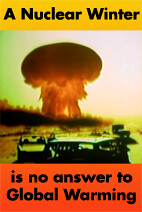Grief
Tragedy demands of us grief. But when it is tragedy that affects people so far away, and where we have become so immune to the images of war and natural disaster on our televisions, it is often difficult to summon the courage and the mindfulness to grieve for people who are killed so tragically.
Antipopper’s post on panic in this matter allows me to reflect on how we tend to imagine that only people like ‘ourselves’ panic, worry or grieve for loved-ones caught in war zones. His analysis is compelling: not only as a critique of Anglo-Australia’s narcissism – that white people only imagine themselves to have concern for their loved-ones – but also as an insight into how each of us tends to only imagine ‘people like me/us’. Antipopper speaks of:
“a narcissism that implicitly precluded the possibility that when horrible things happen outside of the Anglophone world, say in the Middle East, people there might also undergo a similar panic, and be frantically trying to reach relatives and friends”I remind myself that people are panicking for their loved-ones’ safety wherever there is danger, whoever or whatever they are: be they Lebanese/Arab, or Javanese/Indonesian.
People are hunting for their loved-ones in tidal-wave-hit Java: they may be one of the nearly 400 dead, the nearly 200 missing, or one of the 54,000 displaced and homeless.
Yet, Australia’s media broadcasters can only allow us a small slice of this pain. They bulk out our breakfast news serves of this horror with reports of how ‘people like us’ experience this tragedy. Hence, radio interviews with Australian expatriates in the area are considered more articulate than those of Indonesian emergency relief workers. We don’t hear from the grieving parents who’ve found their child in the morgue. Our experience of this tragedy is mediated via white eyes, whose job is to make the pain ‘real’ for us.
The media can’t help but serve us a meal of how Australians have been caught up in war-torn Lebanon – thought I sense a disquiet about the fact that they are Arabs – mainly Australians of Lebanese descent – and in an Arab nation. What were they doing there? Why the Middle East? Why couldn’t they just holiday in Bali or Thailand like real Aussies do?
What hints at this is that their tragedy is played out in greater detail and panic, to convince us that they are real Australia’s whose panic and grief is real and deserving our sympathy.
Yet, I couldn’t help wonder: if they were white Australians holidaying in Thailand, Indonesia, Spain or Fiji when some tragedy or other violence struck, would the Howard government have mobilised evacuation plans much sooner?
Don’t get me wrong. I’m not saying that the Australian media doesn’t report on these tragedies (though whether they do so sufficiently is another thing). However, the sometimes horrifically graphic depictions of Iraqi mothers wailing in grief over their children killed in US bombings, or sectarian violence, or images of horrified Lebanese seeking their family members, etc. are so frequently played out on our television sets that we become impervious to their grief. (On the issue of images of innocence and horror, I recommend Barista's take on this.)
But I find myself asking: how did we come to learn that the quietly raging grief of American mothers whose sons were killed in Iraq, and the images of army boots spread on a field to symbolise the killed servicemen, are somehow closer to ‘us’ as part of the Anglo-world – are somehow more meaningful and powerful – than the visceral, heart rending grief of Arab women?










0 Comments:
Post a Comment
<< Home